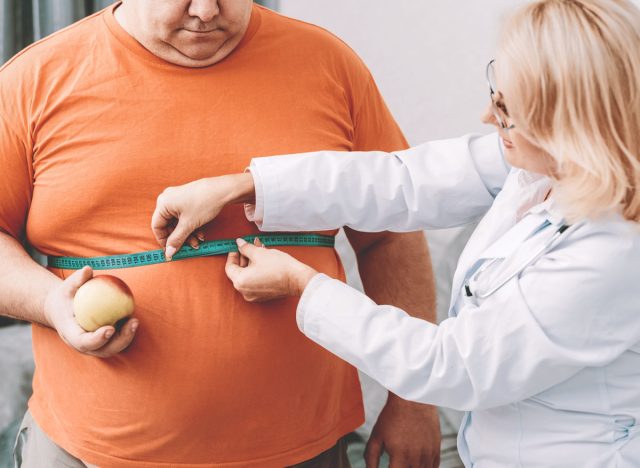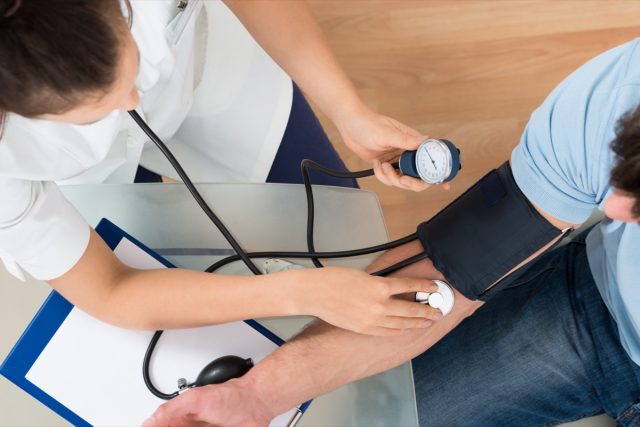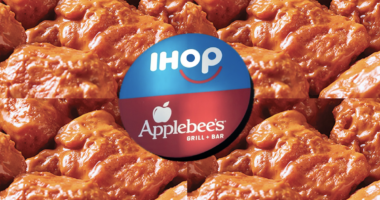It’s undeniable that the convenience of a cold beer during Sunday football or at house parties is among life’s simplest pleasures. Many grocery stores offer a large selection of beers to choose from. Also, visiting breweries and pubs gives you even more opportunities to try crafts on tap. Between the large variety of beer flavors and the places where they are often served, beer appears to be the glue holding most social gatherings together. However, the prevalence of this intoxicating beverage best consumed in moderation can sometimes prove too tempting. And after an IPA here and a stout there, those empty calories can add up, but you may not even realize how much the daily consumption of beer can impact your overall health.
According to the Nutrition Twins Tammy Lakatos Shames, RDN, CDN, CFT, and Lyssie Lakatos, RDN, CDN, CFT, “In order to avoid the negative effects of alcohol, men should limit [their intake] to a maximum of two 12-ounce beers daily, and women should limit [themselves] to a maximum of one 12-ounce beer daily.”
If you or someone you know is guilty of cracking open a cold one on the regular, then it’s imperative that you be aware of the potential ugly side effects which can stem from drinking beer every day. Then, for more insight into how regularly consuming common alcoholic drinks can affect your health, be sure to check out What Drinking a Glass of Red Wine Every Night Does to Your Body.
You may gain weight


Surely, liquid calories don’t count—right? Unfortunately, that’s far from the truth when it comes to beer. In actuality, beer can rack up a ton of empty calories and this could potentially cause weight gain and even lead to “a beer belly” for relatively healthy individuals.
“The average can of beer is about 150 calories,” says the Nutrition Twins. “While that may not sound like much, if you don’t change anything else in your diet and drink only one can of beer a day, over the course of the year, this may lead to more than an additional 15.5 pounds on your frame.”
Additionally, the Nutrition Twins suggest keeping an eye on your server’s pour while out on the town. Oftentimes at bars and restaurants, they may try to fill larger glasses. But the downside to your server’s generosity is that these heavy pours can also increase your calorie count by nearly 50–100 more per drink.
“[Adding this amount of extra calories to your beer serving] can equal as much as 26 pounds over the course of the year,” the Nutrition Twins continue.”And many people don’t stop at just one beer. That beer lowers inhibitions while increasing hunger, and you can set yourself up to overeat on top of it all.”
You may shorten your lifespan
Beer may be good at helping you relax enough to feel more confident, connected, and alive in the moment. But if you’re drinking upwards of 15 12-ounce cans of beer per week, you might be doing a greater disservice to your health and even set yourself up for some potentially fatal repercussions.
“According to one of the largest-ever studies on global alcohol consumption, the more that you drink, the higher the risk to your lifespan,” the Nutrition Twins explain. “This flies in the face of the recommendations [for men] to limit beer to a maximum of two 12-ounce beers daily—[or roughly] 14 12-ounce beers a week set forth by the 2020–2025 Dietary Guidelines, as well as the American Diabetes Association and many other advisory committees.
READ RELATED: Outcry as British researcher is given ANOTHER grant by NIH to investigate COVID
In addition to honoring the recommended maximum of daily beers consumed, beer aficionados striving to keep their health in check should also be mindful of the types of beers they imbibe. Instead of opting for a pale ale, the Nutrition Twins suggest having a dark beer, as these tend provide greater nutritional value than the latter.
“Dark beers surprisingly have more antioxidants and microbrews that contain more polyphenol-rich hops which can protect against disease,” the Nutrition Twins explain. “Research has found that dark beers also have a higher iron content compared to lighter beers. Iron is needed to carry oxygen throughout the body.”
Your workouts may suffer
Let’s just say that beer isn’t the best pre- or post-workout drink. In fact, you might want to stay away from it altogether if you’re looking to have a successful gym session.
“Trying to get fit can feel tough enough without beer working against you,” the Nutrition Twins claim. “Beer is dehydrating. So if you’re not properly hydrating after drinking, you’ll not only impair your workout, but also you won’t be able to efficiently rebuild your muscles after exercise since your body needs to stay hydrated to do so,” they elaborate. “Plus, research shows drinking beer after a workout may impair muscle recovery and makes hydration much more challenging.”
According to the Nutrition Twins, drinking a beer before hitting the gym could possibly trigger a litany of physical symptoms you’d hope to never experience while doing cardio or lifting weights, including fatigue, lethargy, impaired hand-eye coordination, difficulty with balance, changes in your blood pressure, and changes to your heart rate.
Your blood pressure could increase


The more beer you drink, the greater the chance there is for your blood pressure to skyrocket. While it’s normal for your blood pressure to increase and decrease throughout the day, sustained periods of elevated blood pressure could bolster your risk of developing more serious health issues, including upping your risk for heart disease or strokes.
“When you drink too much beer, it causes your blood vessels to constrict since it increases the hormone renin,” says the Nutrition Twins. “Renin also decreases the amount of urine your body eliminates. The combination of constricted blood vessels and higher levels of fluid in the body causes high blood pressure.”
Your risk for developing diabetes could increase
“When you drink too much beer, it decreases the effectiveness of insulin and causes blood sugar levels to rise,” the Nutrition Twins explain. “When your blood sugar is continually high, it increases your chances of getting diabetes. This is especially the case with chronic high blood sugar.”
Although you may not need to cut beer out of your diet cold turkey—or in this case, cold brewski—the primary takeaway is that if you choose to drink beer, do so in moderation and always be cautious and remain cognizant of how much you consume in a given sitting. If concerned about the amount of beer you have each day, or even your potential to reduce your daily intake, consult a medical professional and discuss your options based on your unique body chemistry and physical needs.
Source:









